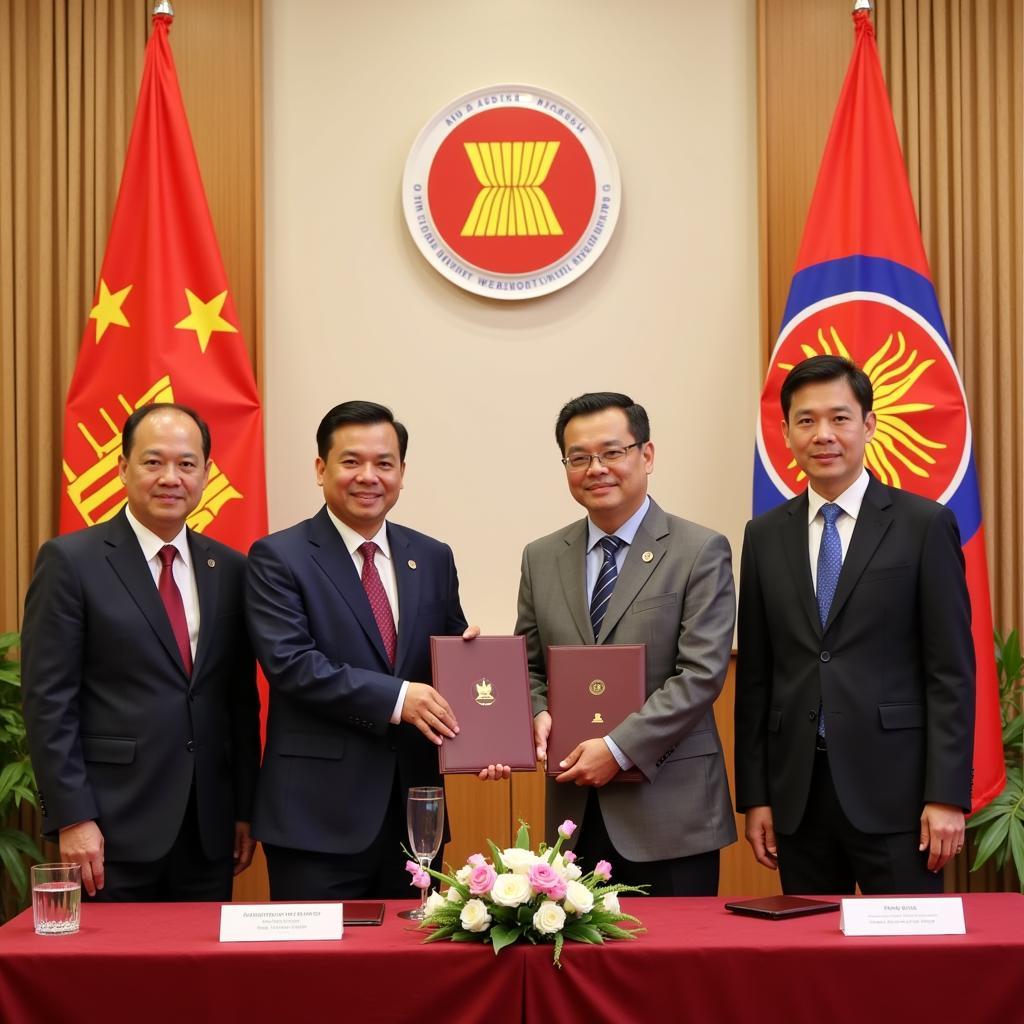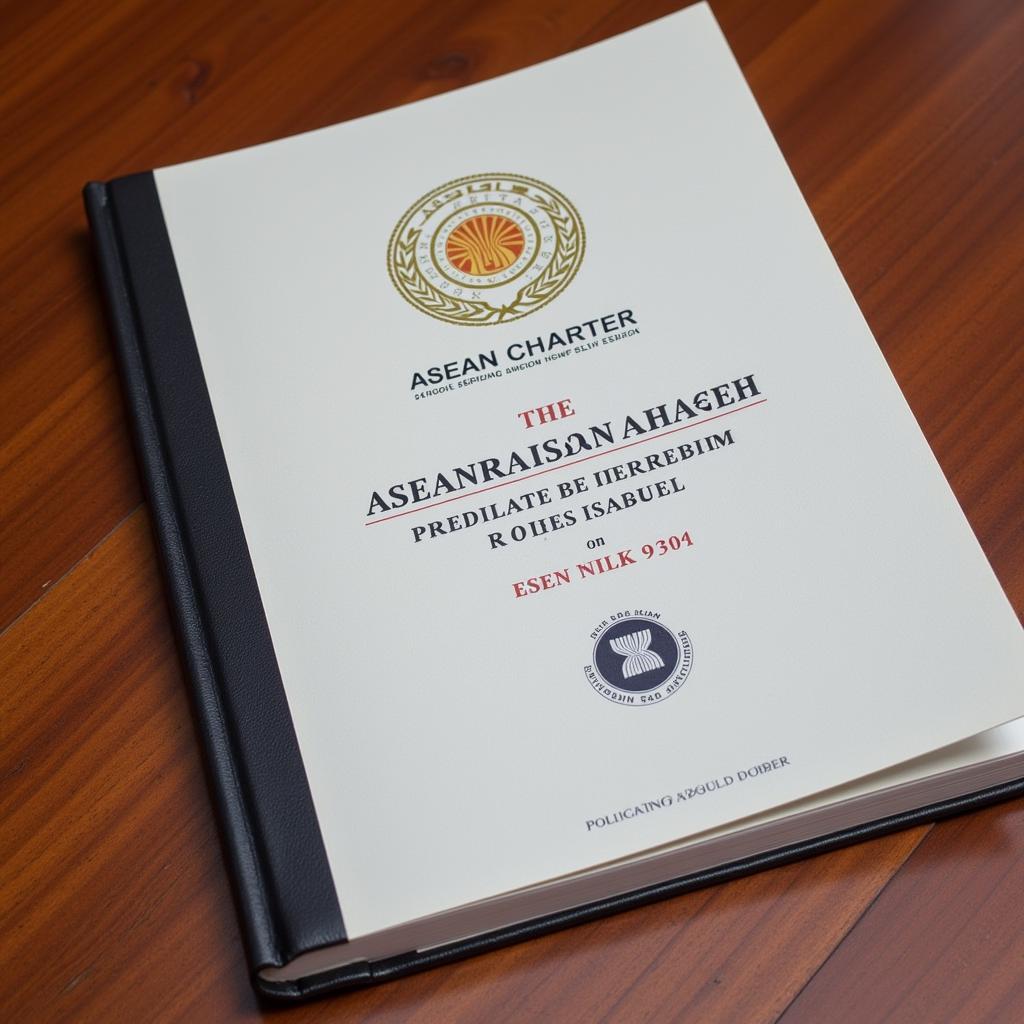The ASEAN Act, often misunderstood as a single legal document, isn’t a singular law but rather a term that refers to a collection of agreements and treaties signed by the member states of the Association of Southeast Asian Nations (ASEAN). These agreements are designed to facilitate cooperation and integration amongst the diverse economies and societies of Southeast Asia.
Understanding the Nuances of the “ASEAN Act”
When people search for “Apa Itu Asean Act” or “what is the ASEAN Act,” they’re seeking information about how ASEAN, as a regional bloc, functions. The key to understanding the “ASEAN Act” is to recognize its multifaceted nature:
- Multiple Agreements: Unlike the European Union’s consolidated treaties, ASEAN operates on a framework of numerous agreements, each focusing on a specific area like trade, security, or culture.
- Evolving Framework: The “ASEAN Act” isn’t static. New agreements and declarations are added as the needs of the region evolve, reflecting ASEAN’s dynamism in responding to global shifts.
 ASEAN Agreement Signing
ASEAN Agreement Signing
Key Pillars of the “ASEAN Act”
While a singular “ASEAN Act” doesn’t exist, the various agreements can be categorized into three core pillars:
- Political-Security Community: Agreements under this pillar aim to maintain peace and stability in the region. This includes mechanisms for conflict resolution, counter-terrorism efforts, and cooperation on transnational crime.
- Economic Community: The goal here is to foster economic integration. Key agreements focus on reducing trade barriers, promoting investment, and facilitating the free flow of goods, services, and skilled labor within ASEAN.
- Socio-Cultural Community: This pillar emphasizes people-to-people connections and a shared ASEAN identity. Agreements encourage collaboration in education, culture, sports, and tourism, fostering a sense of community among citizens.
The ASEAN Charter: A Defining Document
While numerous agreements comprise the “ASEAN Act,” the ASEAN Charter, enacted in 2008, stands out.
- Legally Binding: Unlike previous agreements, the Charter made ASEAN a legal entity, providing a more solid foundation for its operations.
- Rules-Based Framework: The Charter outlines principles of conduct for member states, promoting accountability and transparency within the organization.
 The ASEAN Charter
The ASEAN Charter
How the “ASEAN Act” Impacts You
The “ASEAN Act,” through its wide-ranging agreements, has significant implications for:
- Businesses: The economic agreements pave the way for increased trade and investment opportunities within Southeast Asia.
- Travelers: Simplified visa processes and enhanced cooperation in tourism make it easier for people to explore the diverse cultures and attractions within ASEAN.
- Citizens: Agreements focusing on education, health, and social protection contribute to improving the lives of people living in ASEAN countries.
Looking Ahead: The Future of the “ASEAN Act”
The “ASEAN Act” is not a finished product but a dynamic framework. As ASEAN navigates a complex geopolitical landscape, future agreements will likely focus on:
- Digital Economy: Harmonizing digital regulations, promoting e-commerce, and bridging the digital divide within the region.
- Sustainable Development: Addressing climate change, promoting green technology, and ensuring environmental protection.
- Strengthening ASEAN Centrality: Navigating great power competition and ensuring ASEAN remains a driving force in shaping the regional order.
[ase-satellite-communications]
Conclusion
Understanding the “ASEAN Act” is crucial to grasping the complexities of Southeast Asian integration. Though not a singular law, the term encompasses the web of agreements that bind ASEAN together. These agreements are instrumental in promoting peace, fostering economic growth, and improving the lives of over 600 million people in Southeast Asia. The “ASEAN Act” is a testament to the region’s commitment to collaboration and its vision for a prosperous and integrated Southeast Asia.
FAQ about the ASEAN Act
-
Is there a physical document called the “ASEAN Act”? No, the term “ASEAN Act” is a colloquial way of referring to the numerous agreements and treaties signed by ASEAN member states.
-
Where can I find the full text of these ASEAN agreements? The ASEAN Secretariat website is an excellent resource for accessing official documents.
-
Do all ASEAN agreements have the same level of legal binding? No, some agreements are legally binding treaties, while others might be declarations of intent or frameworks for future cooperation.
-
How does the “ASEAN Act” impact relations between ASEAN and other countries? The “ASEAN Act” helps establish ASEAN’s position in international forums and influences how other countries engage with the region.
-
What are some of the challenges in implementing the “ASEAN Act”? Differences in economic development, political systems, and national interests among member states can pose challenges to the effective implementation of certain agreements.
Need more information?
Explore these related articles:
Contact us for further assistance:
Phone: 0369020373
Email: [email protected]
Address: Thôn Ngọc Liễn, Hiệp Hòa, Bắc Giang, Việt Nam.
Our customer support team is available 24/7 to assist you.

